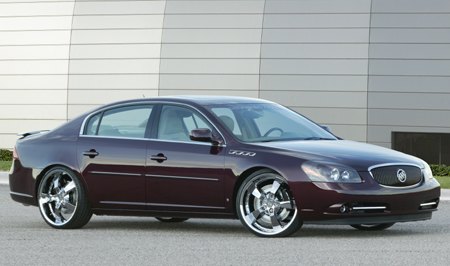America's Love Affair With The Automobile Saves Lives
As a young man, I developed a profound distain for a neighborhood Corvette owner. Every week, he rolled his beautiful brand new C4 onto his driveway to hand wash the car and service the magnificent engine. When the washing ritual was done, the Vettophile slowly paraded the glorious machine though the neighborhood, and then carefully returned her to his garage. A waste of adrenaline stoking pleasure, to be sure, but the Vette owner’s behavior highlights an interesting, oft-overlooked aspect of automotive safety.
In a college industrial psychology class, we studied a California business that suffered significant losses from forklift accidents. A consultant advised the business to assign operators to specific forklifts. More radically, he convinced management to let the drivers personalize their wheels. The operators named them, painted them and blinged-out the forklifts to their heart’s content. Forklift accidents sank to zero virtually overnight. The operators’ efforts to personalize "their" vehicles created an emotional investment in the welfare of the equipment, which motivated them to become safer drivers.
Does this mean that pistonheads smitten with their rides (like our garage queen Vette guy) are less likely to drive like hoons? Maybe. Maybe not. It’s fiendishly difficult (read: expensive) to quantify and separate the huge number of overlapping variables that can have a profound affect on driver behavior: age, income, geography, driver training, driving skill, personal psychology, vehicle type, level of “emotional attachment” and so on. In the absence of hard data, common sense applied to anecdotal information is about as good as it gets.
For example, would anyone in his or her right mind dangle their beloved baby out the balcony window of a five-star hotel? Of course not; only a disturbed pervert would do such a bizarre thing. Likewise, a caring pistonhead would not knowingly endanger a car he adores. Sure, “knowingly” is a gray area. Some of us like nothing more than roughhousing with our machines. But common sense still suggests that the Vette owner's careful husbandry can be extrapolated into a theorem: we’re less likely to endanger a cherished whip with out-of-control recklessness.
Consider the obverse: if we don't care about the vehicle we drive, it becomes easy to thrash it. A dealer once asked me to name the fastest car in the world. “A rental car,” he pronounced. Fair enough: rentals are the automotive equivalent of a one-night stand. Other than the embarrassment of returning a broken car to the agency and the cost of a deductible, what do we have to lose if we ruin a rental car? Nothing. No wonder pistonheads tend to drive them like they stole them.
Likewise, I’d like to see some stats on the accident rates involving short-term leases. Like so-called serial monogamy, a leased car doesn’t require a “real” commitment. Why slow up and take care? After all, you're only going to have the car for a year or two. No matter how badly you race the engine or stomp on the brakes, they’ll be good enough until you get a new ride.
Speaking from statistically irrelevant personal experience, a car doesn’t have to be expensive, luxurious, quick or sure-footed to engender its owner's love. Years ago, I parted with a 16-year-old Toyota Camry. I loved that rolling piece of crap. My blood, sweat and tears were in that machine. I bloodied my knuckles dozens of times changing oil, replacing brake shoes and pads, spark plugs and distributors. Once, I even wrestled out the rear seats so I could replace the rear struts.
More times than I can count, that Camry shuttled me halfway across the country between my parent’s home and college. I drove the car to my wedding and my honeymoon. I drove my wife in the Camry to the hospital for the births of both of our children. I know many of you think that Camrys are soulless appliances that are impossible to love. But people do; these steadfast vanilla vehicles participate in their life experiences. As the ad says, at some point, they become more than a car.
I can think of no public policy or social engineering program designed to improve highway safety by encouraging an emotional connection between man/woman and their machine. (Hmm… Perhaps we should establish a North American Man-Vehicle Love Association? No, no. Bad idea.) However, I do know that as I changed the motor oil in my Honda Accord last night-– she is getting full synthetic these days-– my fondness for the car has grown. Driving safety improves because every act of caretaking for the car makes me that much more invested in its welfare, as well as my own.
More by William C Montgomery
Latest Car Reviews
Read moreLatest Product Reviews
Read moreRecent Comments
- AMcA My theory is that that when the Big 3 gave away the store to the UAW in the last contract, there was a side deal in which the UAW promised to go after the non-organized transplant plants. Even the UAW understands that if the wage differential gets too high it's gonna kill the golden goose.
- MKizzy Why else does range matter? Because in the EV advocate's dream scenario of a post-ICE future, the average multi-car household will find itself with more EVs in their garages and driveways than places to plug them in or the capacity to charge then all at once without significant electrical upgrades. Unless each vehicle has enough range to allow for multiple days without plugging in, fighting over charging access in multi-EV households will be right up there with finances for causes of domestic strife.
- 28-Cars-Later WSJ blurb in Think or Swim:Workers at Volkswagen's Tennessee factory voted to join the United Auto Workers, marking a historic win for the 89- year-old union that is seeking to expand where it has struggled before, with foreign-owned factories in the South.The vote is a breakthrough for the UAW, whose membership has shrunk by about three-quarters since the 1970s, to less than 400,000 workers last year.UAW leaders have hitched their growth ambitions to organizing nonunion auto factories, many of which are in southern states where the Detroit-based labor group has failed several times and antiunion sentiment abounds."People are ready for change," said Kelcey Smith, 48, who has worked in the VW plant's paint shop for about a year, after leaving his job at an Amazon.com warehouse in town. "We look forward to making history and bringing change throughout the entire South." ...Start the clock on a Chattanooga shutdown.
- 1995 SC Didn't Chrysler actually offer something with a rearward facing seat and a desk with a typewriter back in the 60s?
- The Oracle Happy Trails Tadge


































Comments
Join the conversation
Rental Neon? I learnt about the disadvantages of terminal understeer in one. Damage? Broken front suspension, bent wheel and a busted transmission after plowing into a kerb in a 40 mph left hander. Cost? Only the price of the loss-damage waiver of $11 for that day. Never tried that again in a nose-heavy front driver.
Great article, and I really do think its true. I think it has been statistically proven that if you drive a clean (ie. just washed) car, you are less likely to speed and break traffic laws. My car is always clean and I never break the rules, ain't I a good man.